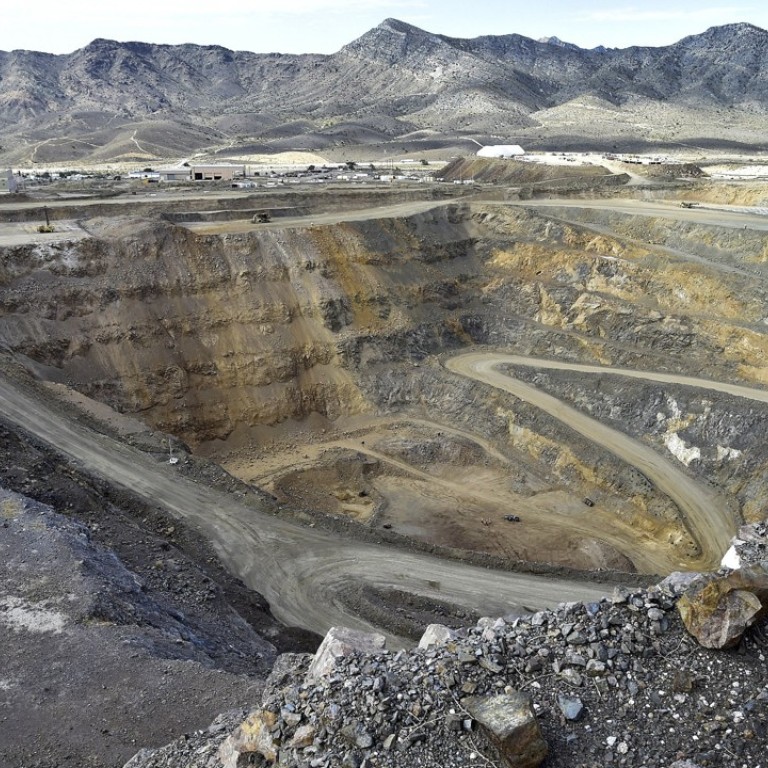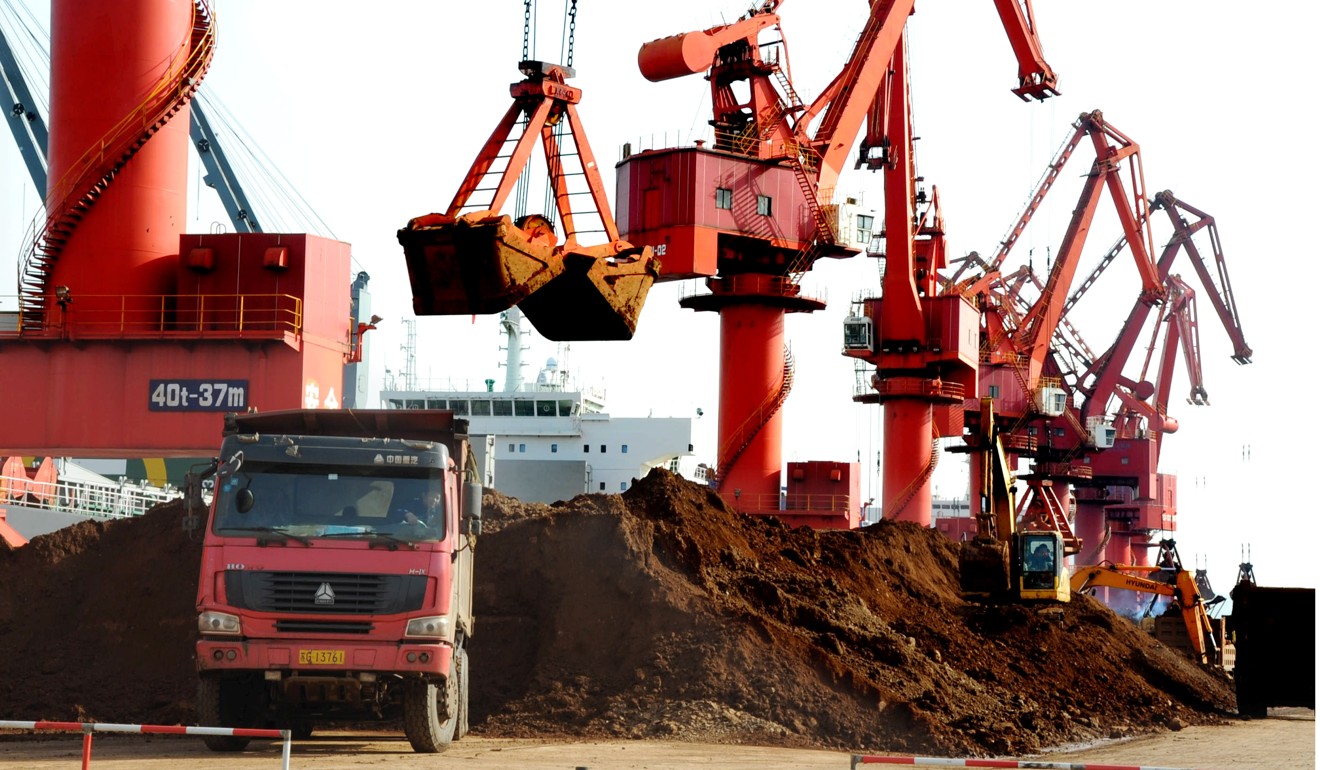
Why this Chinese rare earths company could be caught out in the US-China trade war
The viability of Shenghe Resources Holding’s rare earths mine in California could be affected by Beijing’s plan to impose tariffs of 25pc on US exports
Shenghe Resources Holding, part of a consortium that bought the Mountain Pass mine in California last year, faces the risk of seeing the project – currently under trial operation for reopening – become financially unviable after Beijing plans to imposed a 25 per cent tariff on US rare earth ores.
After the Trump administration imposed a 10 per cent duty on processed Chinese rare earth materials early last month as part of a trade action affecting US$200 billion of Chinese goods, Beijing said it would retaliate by slapping between 5 and 25 per cent tariffs on a wide range of US products, including pre-processed rare earth ores. The implementation and timing are subject to Beijing’s final decision.
Is the US shooting itself in the foot with tariffs on Chinese rare earth elements?
“If the tariffs on US ores were to be imposed and last for some time, it will absolutely have implications on the viability of the Mountain Pass project in the US,” said Ryan Castilloux, managing director of rare earth and electric battery metals consultancy Adamas Intelligence.
“[Beijing] is throwing the baby out with the bath water, they are sacrificing something good in order to have the impact they want via the tariffs.”
The mine was bought just over a year ago by Shenghe, QTT Financial and JHL Capital for US$20.5 million in an auction of Molycorp’s assets. The Colorado-based company went bankrupt after overextending its balance sheet by embarking on building processing facilities designed to produce high value downstream products.

Analysts expected the ore to be initially exported by the new owners to China for processing into higher-value products, but that looks uncertain in the face of tariffs.
“The tariff proposed by Beijing may hinder projects under development in the US, by making them less competitive compared to other operations when selling into China, which has the [world’s] largest capacity for rare earth processing,” said analysts David Merriman and Nils Backeberg at metals consultancy Roskill in a note.
They expect China to maintain its dominance in global processed rare earth materials supply for at least the next two years even as some projects are expected to come on stream in other nations.
The tariff proposed by Beijing may hinder projects under development in the US, by making them less competitive compared to other operations when selling into China
Rare earths are a group of 17 elements – known in some quarters as the “vitamins of industry” as they are essential ingredients in the components of smart electronic products, electric cars, wind turbines and defence equipment that has guidance and control systems.
In the US, some 55 per cent of rare earth imports were for producing catalysts used in oil refineries, according to the US Geological Survey.
If Mountain Pass is reopened and its downstream processing facilities completed successfully with further investment, it could serve to reduce the US’ reliance on Chinese rare earth imports.
Castilloux said if the China tariff is imposed and sustained for a long time, Mountain Pass’ owners have the option to invest to finish building Molycorp’s large processing plant in the US.
But given high environmental compliance costs, it may still have difficulty competing with Chinese imports depending on the level of tariff on Chinese products, he added.
An investor relations executive at Shanghai-listed Shenghe, a major rare earth processor, declined to comment when asked about its strategy to cope with the potential China tariff on US ores.
Its general manager Tang Guangyao said the company was “well-prepared” on the potential technical requirements of the Mountain Pass project, citing comments from its semi-annual management meetings earlier this month.
The company has also adopted a diversified international expansion strategy. Just over a week ago it signed a non-binding memorandum of understanding with Australia’s Greenland Minerals and Energy to form a joint venture to finance and develop a rare earth mining and processing project in Greenland.
Shenghe has expressed an interest to buy the entire output from the project, which is pending environmental impact assessment.
Encouraged by high rare earth prices, Molycorp in 2012 reopened Mountain Pass but went bankrupt less than three years later because of plunging product prices, after China was forced to cancel export quotas due to complaints by major importing nations to the World Trade Organisation.
China goes all out to secure lithium, cobalt supplies – key to dominating the world electric car market
Once providing over half the world’s rare earth supply for nearly three decades until the early 1980s, the mine was shut in the early 2000s because of low product prices and higher environmental compliance requirements.
The pressure is on other nations to step up production of rare earths. Roskill’s analysts said China may turn from a net exporter into a net importer of downstream rare earth products in the future amid rising domestic demand for the strategic material.

